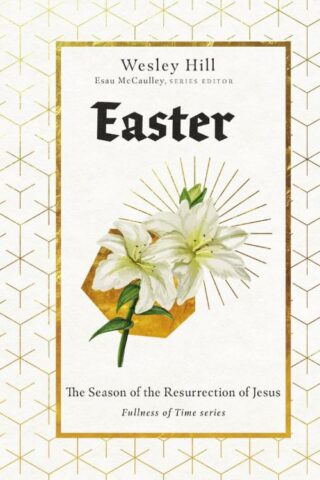Wesley Hill
Showing the single result
-
Easter : The Season Of The Resurrection Of Jesus
$21.99“He is risen indeed!”
Easter Sunday is the holiest day of the year, a day when even those who don’t usually observe the Christian calendar or attend liturgical churches greet each other with the proclamation “Christ is risen!”
But Easter is more than a day–it’s a season even longer than Lent. In fact, for the Christian who has died with Christ and been brought to life in him, Easter is the new, joyous, and radical way of living. The world is turned upside down. In this short volume, priest and New Testament scholar Wesley Hill explores the history and significance of Easter for the church and for our own spiritual formation.
This volume of the Fullness of Time series offers readers:
*An accessible, digestible introduction to the history and practice of the season of Easter
*Practical application of the Scriptural story and theology of Easter to our own spiritual formation, and
*A helpful contextualization of the Easter season into the context of the rest of the church calendar.
Each volume in the Fullness of Time series invites readers to engage with the riches of the church year, exploring the traditions, prayers, Scriptures, and rituals of the seasons of the church calendar.
Add to cartin stock within 3-5 days of online purchase











